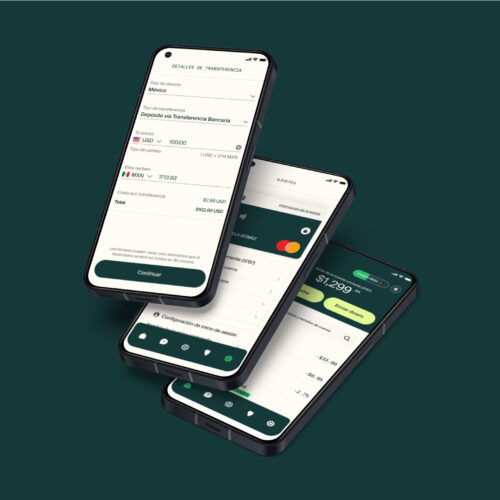In October, the Trump administration issued restrictions that directly affect access to birth control coverage under the Affordable Care Act (ACA). The government released two states: one offering exemption based on religious beliefs, and a second offering exemption based on moral beliefs.
In January 2018, companies across the country will be renewing their health insurance plans, and as a result of a new rule from the Trump administration, they will decide whether or not to deny their employees birth control coverage.
Kepp in mind, ninety-seven percent of Latinas who have ever had sex rely on birth control but affording birth control contraceptive can be severe and for many Latinas. One-fifth of Latinas live in poverty, and for some women, it may come down to deciding between paying their rent or putting food on the table for their children or paying for birth control. Since the affordable access to birth control, more women have access to opportunities, they can better plan their families, and economic equality is more within reach. An attack on birth control is even more insulting to Latina voters aged 18-34 since 89% of them support insurance coverage of birth control.
Birth control has been central to gains in economic opportunity and equality for women — but now it’s under attack. These three Latinas from different walks of life, whose access to birth control had central to their access to opportunities and allowed them to plan the futures they want.
Silvia – Phoenix, Arizona
As a child, I was diagnosed with Juvenile Rheumatoid Arthritis. I have been living with this condition for the past 24 years. Being sick at such a young age made me more aware of my health — regular visits to the doctor became my new routine. As an adult, I reached a point where I wanted to have kids, so I made an appointment with my rheumatologist to talk it over. She explained that due to my treatment I should not pursue getting pregnant, as the medicine I was on would put my pregnancy at risk. I was heartbroken. I felt like I had no control over my life, starting with my own body. I wanted to experience the surprise and joy of learning you are pregnant, but that won’t ever be an option for me. If I do decide to pursue a pregnancy, it will be filled with fear and anxiety. Given the risk, my doctor recommended I go on birth control, as I was only using condoms at the time. I didn’t have health insurance and didn’t know where to turn until I heard about Planned Parenthood and Title X. I learned that even for people without insurance, Planned Parenthood provides affordable birth control options and preventive care. I made an appointment, and the doctor helped me determine the best option, and I was able to get it for free. Having access to birth control allowed me to gain control over my life and that control allowed me to make my health a priority.
Estefany – Orlando, Florida
When I first became sexually active, I decided to go on birth control. I initially went to a private gynecologist to talk about my birth control options. I was excited to be taking control of my health care decisions, but when I finally saw the gynecologist, she asked me some stigmatizing questions and made incredibly judgmental comments about my sex life. She did not support my preferred contraceptive method, yet did not provide alternatives. I left that day without birth control and feeling shocked at how insensitive she had been. Here I was trying to take care of myself, and a medical professional was judging me for it? I was so angry, but thankfully I immediately thought of Planned Parenthood and wondered why I didn’t go there in the first place. I called them, and they were able to make an appointment for me right away.
At Planned Parenthood I was met with staff that immediately made me feel comfortable, safe, and taken care of. I was offered a variety of different birth control options that were not provided by the doctor I had previously met with. I was a bit overwhelmed with choices which honestly was a significant problem to have, and I ended up leaving that day with the depo shot that was immediately effective. After the stigmatizing experience with the private gynecologist, I could have so easily felt humiliated and defeated and never sought out birth control again, but thankfully I knew to go to Planned Parenthood, and if it weren’t for them, I don’t know where I would be today. Last year, I decided to change birth control methods and have an IUD inserted, again I turned to Planned Parenthood. Even the closest health center that took my insurance at the time was an almost an hour drive from my house; I knew my health came first. The fear I felt at the thought of being without birth control solidified my decision to choose a more long-term option, and now that I am in graduate school I am so glad I have the birth control I don’t have to worry about for another six years.
Rebekah – Cherry Valley, California
As a Latina, family, and education are two of my bedrock values. When I was a teenager, my dream was to have both — to go to college and to become a mom. But to make it happen, I needed to go to school first, then become a mom. It is too hard for me to do it the other way around! That meant I needed access to family planning and health insurance, which was not easy to come by. In community college, I was studying full time, waiting tables, and working retail. But even with two minimum wage paying jobs, I couldn’t afford health insurance. I didn’t have a car either, so transportation posed additional barriers. But one day when I was walking down the hall at school, I saw a flyer that said Planned Parenthood had a mobile clinic in one of the classrooms on certain days. I signed up for an appointment, and my life changed. Suddenly I had access to free, high-quality healthcare, which included family planning and birth control. That access was critical in helping me achieve my goals. Because I was able to take charge of my life with affordable birth control, I was able to focus on school, get straight A’s, and transfer out of community college to UCLA. And ten days after I graduated from UCLA, I gave birth to my son. I was able to be a mom, go on to graduate school at Harvard, and achieve a career the United States Congress. My son is a teenager now, and he has everything he needs in life. He has health care, and he doesn’t have to struggle the way I did. He also loves to brag about mom, which is a great feeling. I will always be grateful to Planned Parenthood for the support that helped me get there.
Birth control has been central to gains in economic opportunity and equality for women — but now it’s under attack. We heard from three Latinas from different walks of life, whose access to birth control has central to their access to opportunities and allowed them to plan the futures they want.









